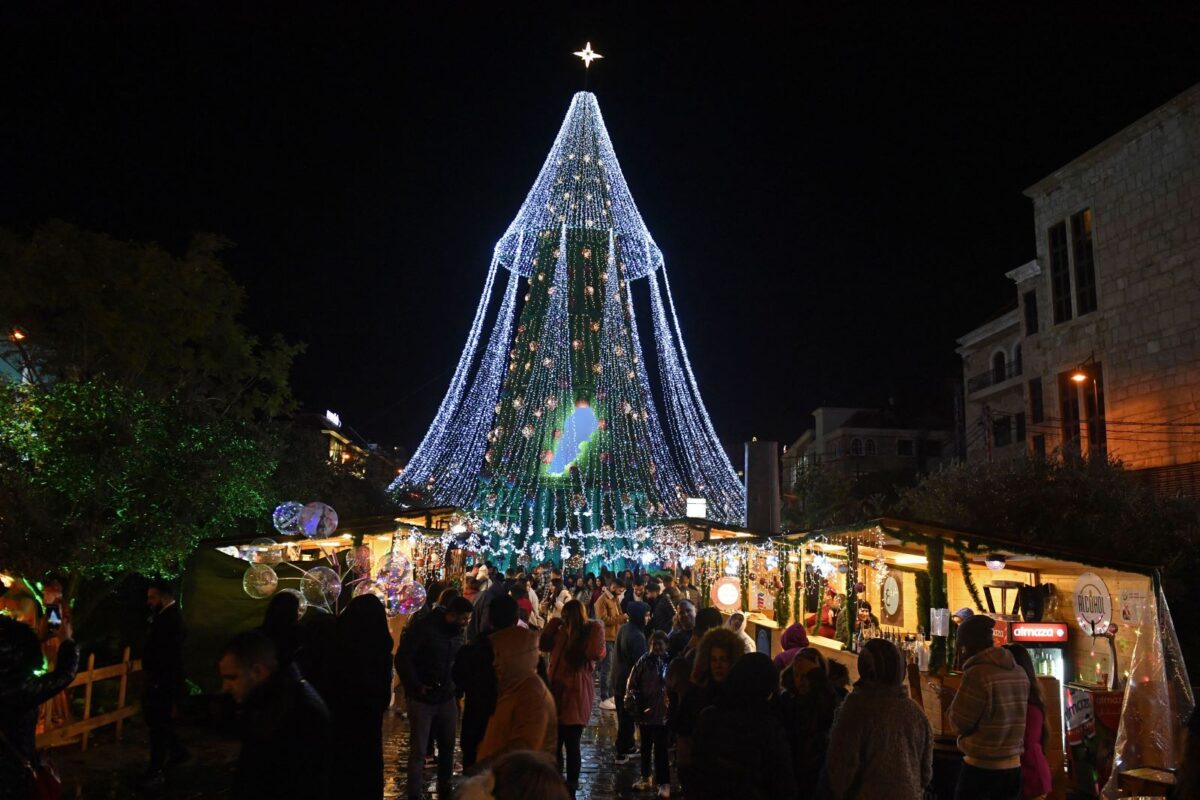
The threat of the war along with continued travel advice from Western governments urging their nationals to leave the country would have deterred Lebanon’s expats from flying home to celebrate Christmas and New Year’s Eve this year. That is not the case as flights, hotels and restaurants are fully booked despite the security instability in the country
While the Lebanese diaspora outnumbers the population within the country, the era of leaving and never returning is a thing of the past.
Sara Hashem visits Lebanon every December and this December is no different despite the danger posed by the war that broke out between Hezbollah and Israel, which even targeted her city Baalbeck.
Last week, she travelled from the UK to her town Hermel, in Lebanon’s Bekaa, to see family and friends and simply enjoy the feeling of being home in the festive period even though the vibes in her hometown are far from that, overshadowed by the number of deaths from her own village and surrounding villages.
“If we hadn’t come in the winter, we would come in Easter or the summer,” said Sara to NOW.
“For me home is everything, it is a way of boosting my mood and refueling my energy to when I return to the UK, it is a way to ensure that my kids are connected to their home country, and although it costs us a fortune every year with the tickets and the expenses, I think it is worth it because our family in Lebanon needs us the most after what they passed through for the past two months of the war,” Sara explained.
Sara is one of thousands of diaspora Lebanese visiting this winter. Like many, she makes the trek home at least once a year, “and in recent years, twice.”
Lebanon’s war erupted just as Lebanon’s tourism sector appeared to be settling down and making gains.
Nearly every Lebanese person holds a deep, almost unshakable desire to return home whenever possible, a thing shaped by generations of emigration and the longing it has left behind.
“What we see on the streets is very different from what we hear in the media,” said Adam Hajar, who lives in Australia and returned to Lebanon for the festive holidays while speaking to NOW.
He also remarked, “The foreign press often gives the impression that Lebanon is completely destroyed, with every area resembling a war zone, but the festive spirit here is incredible as even during the country’s toughest times, places like Beirut, Jbeil, and Batroun have managed to bring the joy of Christmas to life for everyone.”
Many Lebanese like Sara and Adam decided to return home for the holidays this year, making last-minute plans based on geopolitical and security developments.
In the city, families gathered for a street festival in the heart of Beirut, with children enjoying the celebrations that lasted late into the night.
“We live one day at a time. People here love to enjoy life and spend whenever they have the chance. Of course, there’s fear, but we trust in God,” said Elie Beaino, owner of a children’s clothing shop in Beirut’s Mar Elias. Despite the country’s challenges, he noted that his sales have been strong, especially during the festive season.
Decisions influenced by the war
Tony Ramy, head of the Syndicate of Owners of Restaurants, Cafes, Nightclubs and Pastry Shops had told local media that the main challenges facing Lebanon’s tourism and restaurant sector is the high airline ticket prices as with increased demand and limited flights, ticket prices are almost out of reach. Secondly, according to Tony because of limited flights, travelers are left with fewer options.
Another challenge that Tony highlighted and is a very prominent one in influencing the decision of expats to return is the country’s security concerns as the unstable situation in Lebanon discourages expatriates from visiting since many prefer safer destinations.
For Lebanon, already in the midst of a historic economic crisis since 2019, the festive winter holidays along with the summer holidays is a lifeline. It’s typically when foreign tourists visit and when Lebanese in the diaspora fly to Beirut in droves to spend time with family, see their ancestral villages and spend the most cash.
No foreign tourists: No hotel bookings
The head of the hoteliers’ association, Pierre Ashkar, says the ceasefire agreement will positively impact Lebanon’s tourism sector in the long term. However, he notes that the short-term benefits, will be modest compared to last year’s revenues.
While flights to Lebanon are fully booked, most passengers are Lebanese expatriates rather than European or Arab tourists. This affects hotel occupancy, as many Lebanese own homes in the country and don’t require hotel stays.
For New Year’s celebrations, Beirut lacked major concerts by top-tier artists because organizers delayed booking them, leaving these performers committed to events in Europe, Africa, or other Arab countries.
Despite these challenges, Ashkar believes Lebanon’s situation will gradually improve. However, he notes that many potential visitors remain hesitant due to security concerns, preferring to wait for at least 60 days to confirm stability before countries begin lifting travel bans to Lebanon.
Regarding the hotel sector’s losses, Ashkar says exact figures are unavailable, as data in Lebanon often varies depending on the source. However, he estimates a decline of 60–65 per cent in hotel activity during the war compared to 2023, up until the ceasefire.
Despite ongoing economic and security challenges, the ceasefire agreement brings hope to vital sectors like tourism.
The tourism sector is showing signs of gradual recovery, supported by resumed air traffic and strong booking rates. While short-term improvements remain limited, long-term recovery is expected if political reforms stabilize the broader economic situation.
Rodayna Raydan is a Lebanese-British journalist. You can follow her on Twitter @Rodayna_462
The views in this story reflect those of the author alone and do not necessarily reflect the beliefs of NOW.








